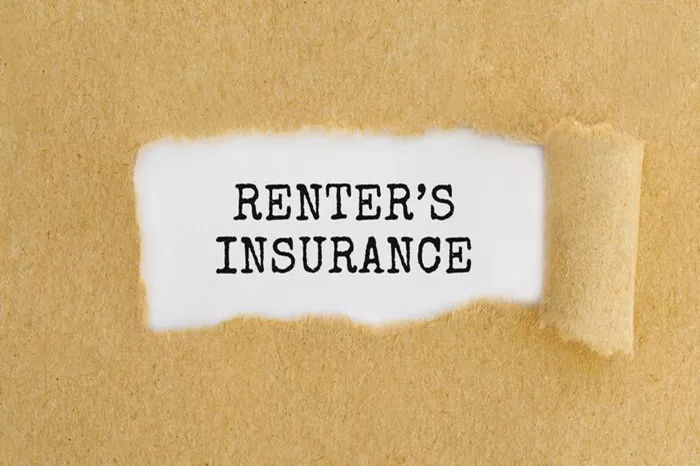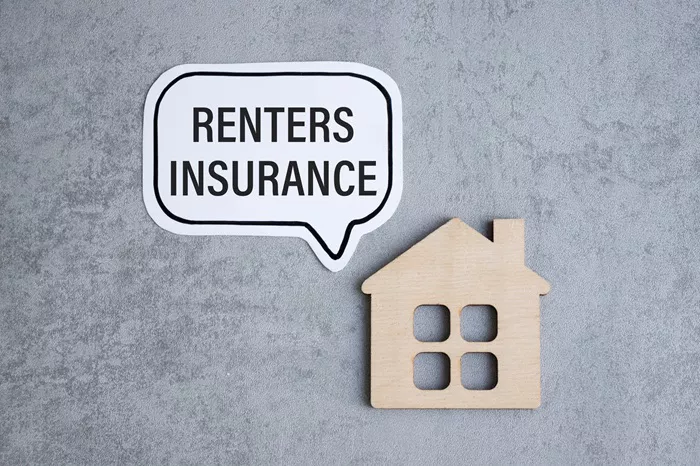When you rent a home or apartment, securing renters insurance is a smart move to protect your personal belongings and liability. However, understanding how renters insurance works, particularly the concept of a deductible, can sometimes be confusing. This article will demystify what a deductible is in renters insurance, why it matters, how it affects your premiums, and provide insights on how to choose the right deductible for your policy.
Understanding Renters Insurance
Before diving into the specifics of deductibles, it’s essential to have a basic understanding of what renters insurance covers. Renters insurance is a policy designed to protect tenants from financial loss due to unexpected events like theft, fire, or liability claims. Unlike homeowners insurance, which covers the structure of a home, renters insurance focuses primarily on personal property, liability, and additional living expenses.
Key Components of Renters Insurance
Renters insurance typically includes the following components:
Personal Property Coverage: This covers the cost of replacing your personal belongings if they are damaged, destroyed, or stolen due to a covered peril (e.g., fire, theft, vandalism).
Liability Coverage: If someone is injured in your rented home or you accidentally damage someone else’s property, liability coverage can help pay for legal expenses, medical bills, and damages.
Additional Living Expenses (ALE): If your rental becomes uninhabitable due to a covered event, ALE can cover the costs of temporary housing, meals, and other related expenses.
What Is a Deductible?
A deductible is the amount of money you are required to pay out of pocket before your renters insurance kicks in to cover a claim. In other words, the deductible is your share of the financial responsibility when you file a claim. The insurance company will only cover the amount that exceeds your deductible.
For example, if you have a deductible of $500 and your claim is for $2,000 worth of damage, you would pay the first $500, and your insurance company would cover the remaining $1,500.
Types of Deductibles in Renters Insurance
There are generally two types of deductibles you might encounter in renters insurance:
Fixed Dollar Deductible: This is the most common type of deductible. It is a specific dollar amount that you must pay before your insurance coverage applies. For instance, you might choose a deductible of $250, $500, or $1,000.
Percentage-Based Deductible: Less common in renters insurance but more typical in homeowners insurance, a percentage-based deductible is calculated as a percentage of the insured value of your personal property. For example, if you have $50,000 worth of personal property coverage and a 2% deductible, your deductible would be $1,000.
Why Deductibles Exist
Deductibles serve several important functions in the insurance industry:
Reducing Small Claims: By requiring policyholders to pay a deductible, insurance companies can avoid processing small claims that could be financially draining. This helps keep premiums lower for everyone.
Encouraging Responsible Behavior: Knowing that you have to pay a deductible may encourage more careful and responsible behavior to avoid minor damages or losses.
Lowering Premiums: Deductibles help lower the overall cost of insurance premiums. The higher your deductible, the less you pay in premiums because you are taking on more of the financial risk.
How a Deductible Affects Your Renters Insurance Premium
One of the most significant factors influencing your renters insurance premium is the size of your deductible. Generally, the relationship between deductibles and premiums can be summarized as follows:
Low Deductible, Higher Premium: If you choose a lower deductible, such as $250, your insurance company takes on more risk, which leads to higher premiums. This option is ideal for individuals who prefer to pay less out-of-pocket in the event of a claim but are willing to pay more in premiums.
High Deductible, Lower Premium: Opting for a higher deductible, such as $1,000, means you assume more financial responsibility in the event of a loss. As a result, your insurance company reduces your premium. This choice is better for those who want to save on monthly premiums and are comfortable with paying more out-of-pocket if they need to file a claim.
See Also: What Affects the Cost of Renters Insurance?
Choosing the Right Deductible for Your Renters Insurance
Selecting the appropriate deductible is a crucial decision that depends on your financial situation, risk tolerance, and lifestyle. Here are some factors to consider:
Financial Stability: Consider your current financial situation. Would you be able to comfortably pay the deductible in the event of a loss? If not, a lower deductible might be a safer choice.
Value of Personal Property: If you own high-value items, such as electronics, jewelry, or collectibles, you may want to choose a lower deductible to ensure that you can afford to replace them without significant out-of-pocket costs.
Risk Tolerance: Are you someone who prefers certainty and peace of mind, or are you willing to take on more risk to save on premiums? Your risk tolerance should guide your choice of deductible.
Frequency of Claims: If you live in an area prone to certain risks (e.g., theft, natural disasters), you might anticipate needing to file a claim at some point. In such cases, a lower deductible could be more practical.
Examples of How Deductibles Work
Let’s look at a few hypothetical scenarios to illustrate how deductibles work in renters insurance:
Scenario 1: Low Deductible, Higher Premium
Deductible: $250
Claim Amount: $1,000
Out-of-Pocket Cost: $250
Insurance Payout: $750
In this scenario, you’ve chosen a lower deductible, so your out-of-pocket cost is relatively low, but you likely pay a higher monthly premium.
Scenario 2: High Deductible, Lower Premium
Deductible: $1,000
Claim Amount: $1,500
Out-of-Pocket Cost: $1,000
Insurance Payout: $500
Here, you’ve opted for a higher deductible to save on premiums. However, your out-of-pocket cost is much higher when you file a claim.
When to File a Claim Based on Your Deductible
The size of your deductible can influence your decision to file a claim. If the damage or loss is only slightly higher than your deductible, it may not be worth filing a claim, as it could increase your premiums in the future. For instance, if you have a $500 deductible and the damage is only $600, you might prefer to cover the full cost out of pocket.
On the other hand, for significant losses that far exceed your deductible, filing a claim is likely the best course of action.
Impact of Multiple Claims on Your Premiums
Filing multiple claims within a short period can lead to an increase in your insurance premiums, regardless of the deductible. Insurance companies view frequent claims as an indicator of higher risk, which can result in higher costs for coverage. Therefore, it’s wise to carefully consider the potential impact on your premiums before filing small claims.
Conclusion
Understanding what a deductible is in renters insurance and how it impacts your coverage and premiums is crucial for making an informed decision. By carefully evaluating your financial situation, the value of your personal belongings, and your risk tolerance, you can choose a deductible that provides the right balance of affordability and protection.Ultimately, renters insurance is an essential safeguard for anyone renting a home or apartment. It not only protects your possessions but also offers peace of mind in the face of unexpected events. Whether you opt for a higher deductible with lower premiums or a lower deductible with higher premiums, the key is to find a policy that aligns with your needs and provides adequate coverage for your unique situation.





















